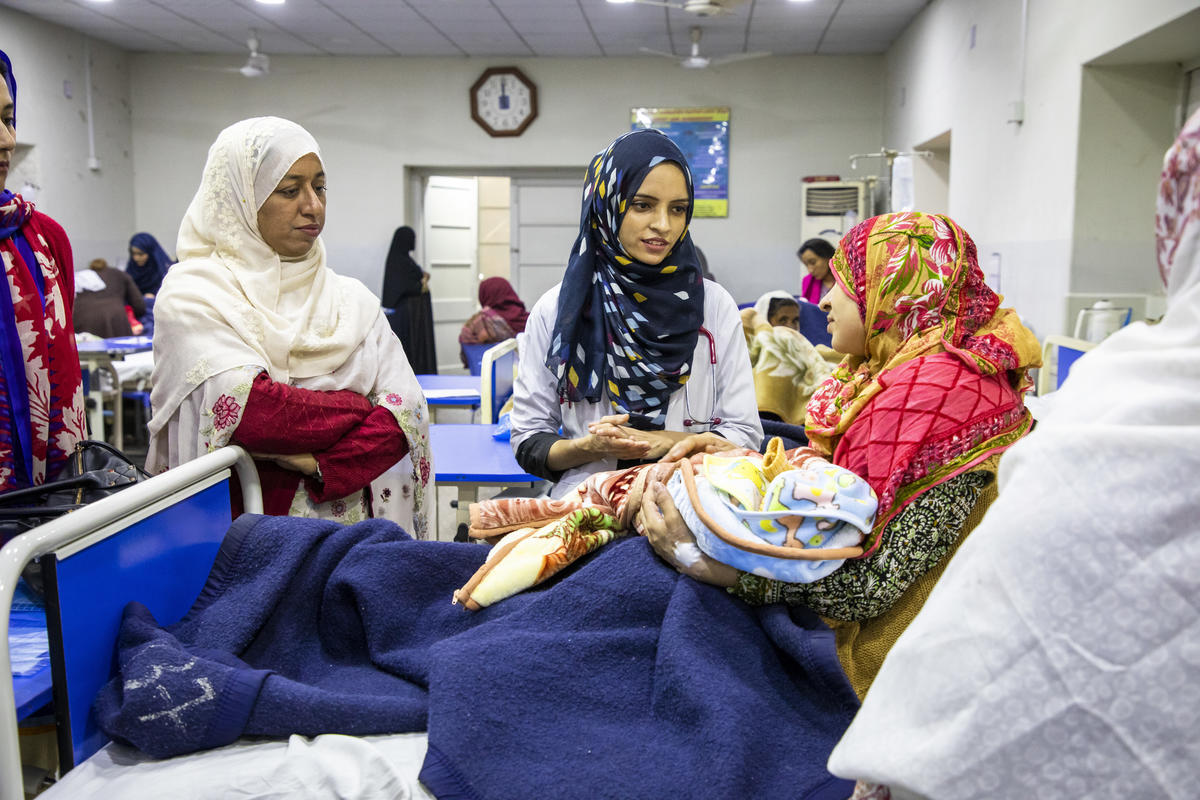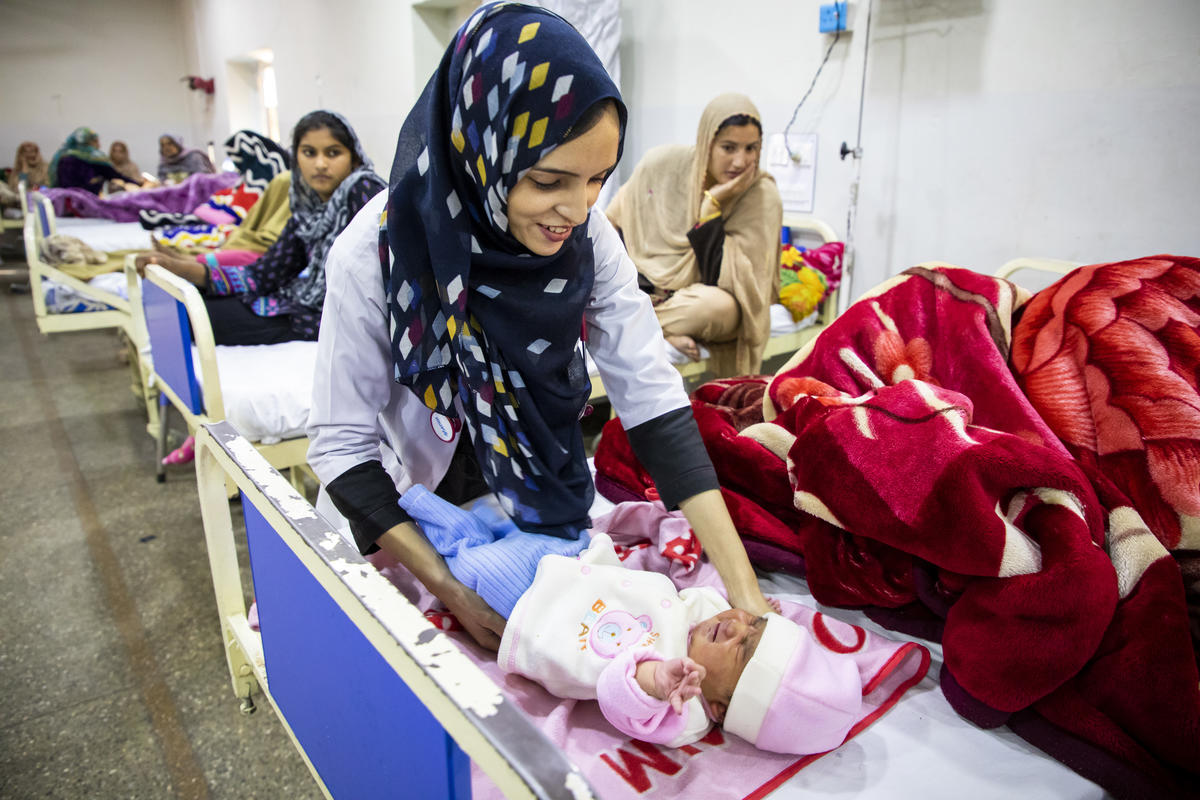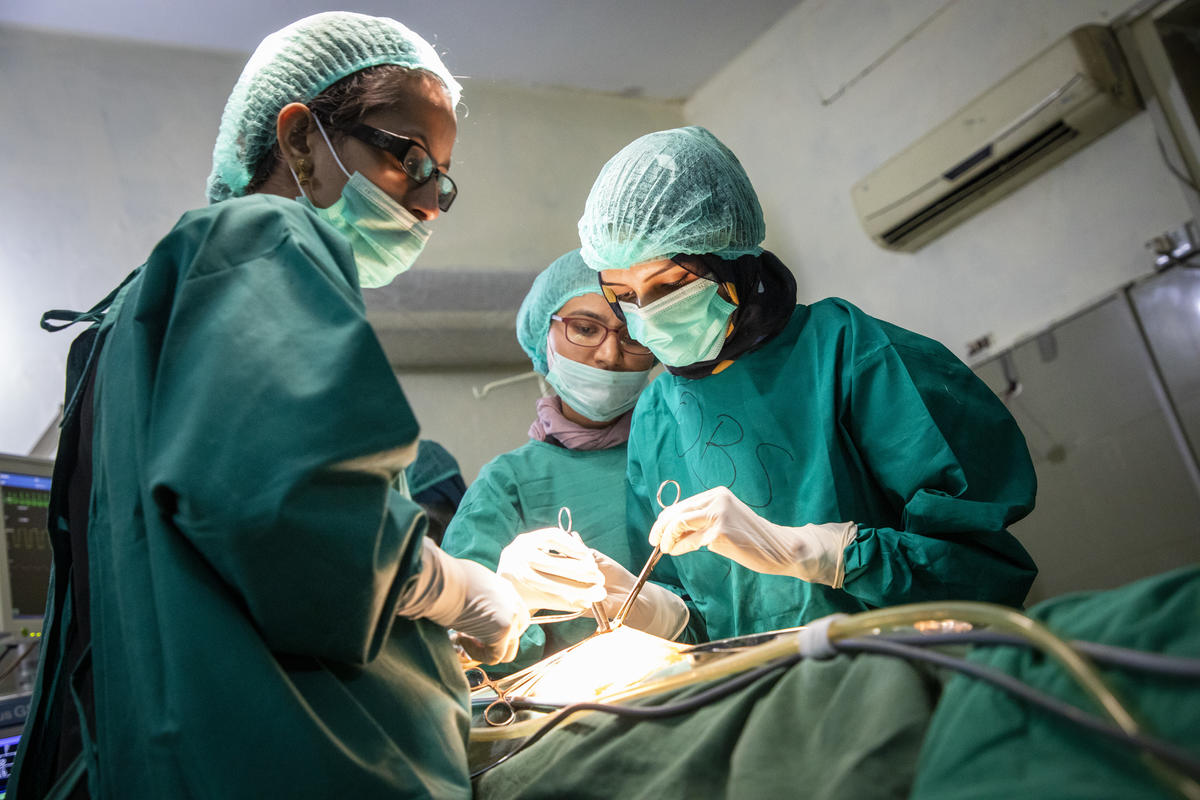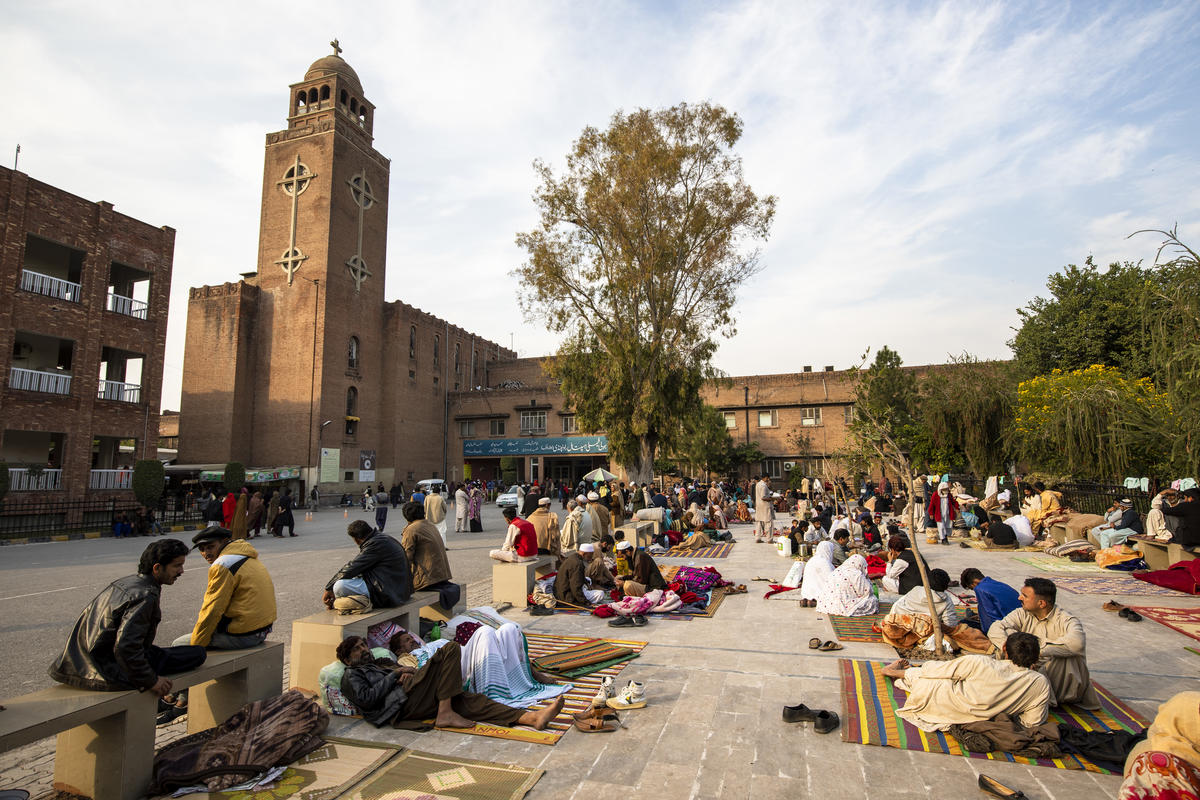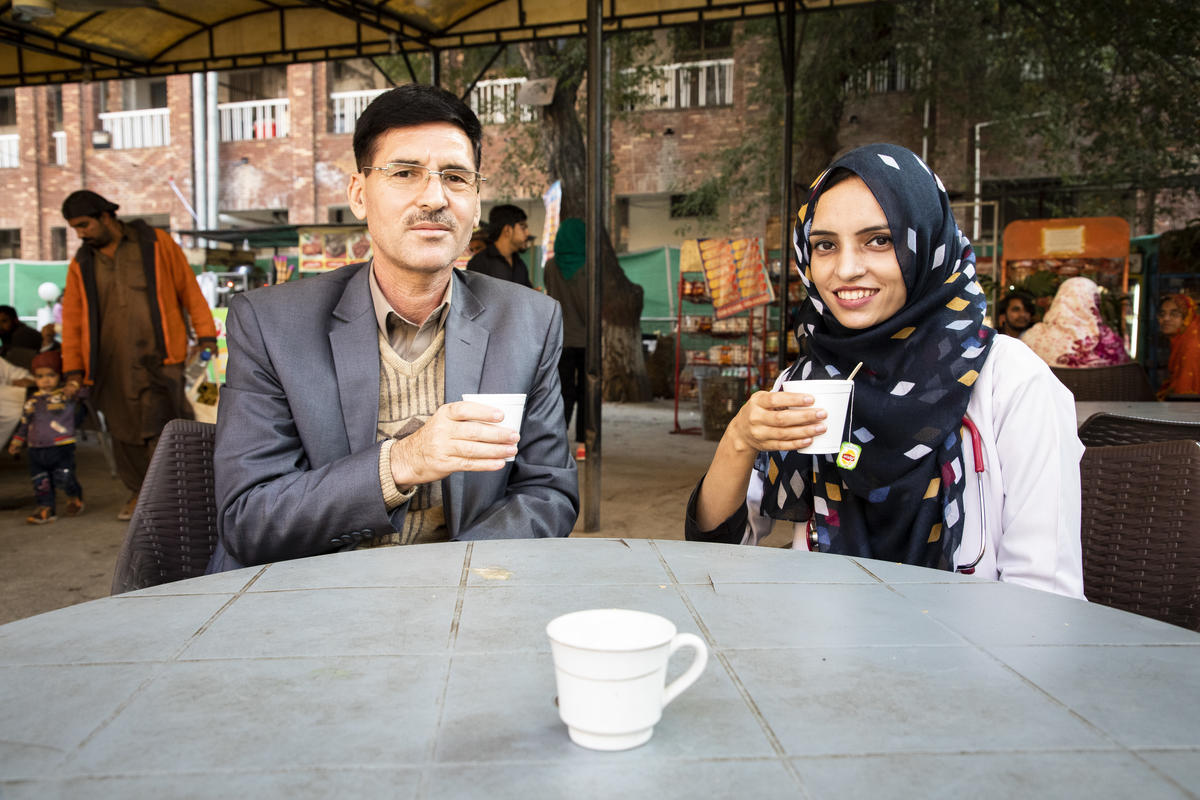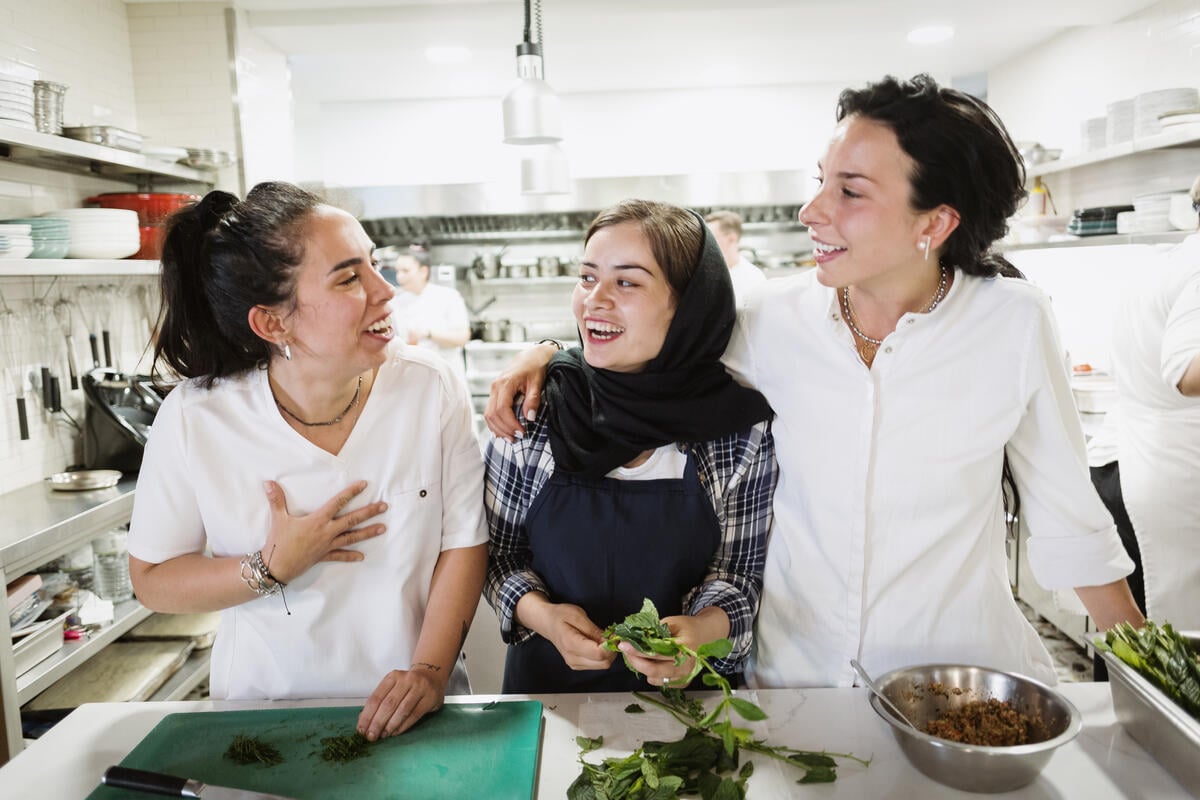Afghan woman breaks barriers to heal Pakistan's poor
The heart monitor sounds a slow, steady beat, as a group of doctors gather around an operating table. Light illuminates a woman’s stomach.
With a nod, Doctor Saleema Rehman signals that she is ready.
As an Afghan refugee in Pakistan, the 28-year-old has faced a lifetime of barriers in her quest to get an education.
Now, after nearly three decades of study, Saleema has beaten the odds by training to become the first ever female Turkmen refugee doctor in Pakistan. Within a few hours, she will remove an ovarian cyst and transform her patient’s life.
“I have a duty to help women,” she says, warmly. “I feel so lucky. In my community many girls do not get this opportunity. I think it is in my destiny.”
"I have a duty to help women."
This sense of duty led her to specialize in gynaecology. Every day, she delivers around five babies at Rawalpindi’s Holy Family Hospital and cares for 40 women in each ward, many of whom live in poverty. Treatment is free. However, there are two patients for every bed and she works long shifts to attend to them all.
“Sometimes we eat dinner at 2am,” she says, from the hospital staff room. Her first priority is people, even here, as she offers an exhausted colleague water and wraps a blanket around her shoulders. “We have to put aside our hunger.”
Getting to this point has been a lifelong struggle.
Growing up in the Turkmen refugee community in northwest Pakistan, cultural expectations and insecurity meant Saleema faced an endless battle for education. As a refugee, that battle was twofold – but she was not alone.
Her father, who fled Afghanistan at the age of 13, was by her side at every step. He helped to open local schools and advocated for girls’ education. By day, he sold bananas to keep his daughter’s dream alive. By night, he designed carpets.
Eventually, after years of schooling, a highly-prized scholarship offered by Pakistan opened the doors to Saleema’s medical career.
“Saleema applied for three consecutive years for medical scholarships,” says her father Abdul, 49. “She was always struggling to make her dream come true. We faced many challenges from our elders who said that we should not be sending children to school, but finally, we won. We got that fruit for which we struggled a lot.”
Three years into her placement at Holy Family Hospital, Saleema is flourishing. Her supervisor, Humaira Bilqis, has helped to nurture her talent.
“She is very special,” says the consultant gynaecologist. “She has worked so hard in her life. Whatever challenge we give her, she never says no – day or night, she doesn’t hesitate. She has never disappointed me. I am very proud of her.”
“I didn’t know she was a refugee,” she adds, glowing with pride. “I don’t see her as that. We have never thought of her as not Pakistani. She is one of us. She is an asset for her country. After knowing it, I am even more proud of her.”
"She has never disappointed me."
Next year, Saleema will finally finish her specialization as a gynaecologist. But, as a refugee, her future as a doctor in Pakistan is uncertain.
“Training is allowed, studies are allowed,” she says. “But what to do afterwards? If the Pakistan government allows us Afghan refugees to practice here, we can be very helpful to our community, and I can work for the Pakistanis as well.”
If Saleema succeeds, she hopes to inspire other refugee girls.
“Whenever I go home, women come to me and say they feel very proud. I am so happy that maybe their ideas will change and they will send their daughters to school. I want them to get an education. This will make a difference to generations.”
“Even my own niece wants to be a doctor,” she adds, laughing. “She always takes my stethoscope. She calls me Doctor Aunt.”
Efforts to bring refugees and their host communities together form part of a wider approach to address displacement and enhance the socioeconomic inclusion and self-reliance of refugees. In particular, education will be among the areas of focus at the Global Refugee Forum, a high-level meeting that will be held in Geneva next week and of which Pakistan is a co-convener.
In the meantime, Saleema will continue to serve her community and some of the poorest people in Pakistan. Finally, her father’s promise has been fulfilled.
“We were not expecting her to survive at birth,” says Abdul. “The baby was upside down. I promised that, boy or girl, I would make them a doctor when they grew up. We have been calling her Doctor Saleema ever since she was three.”
“If there is a problem in my community, they ask me because I have a daughter who is a doctor. It is a great sense of pride for us. Saleema is an example for Pakistan, for our community, for Afghanistan. She is an example for people.”



